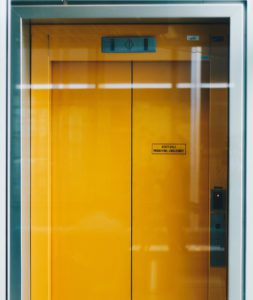Elevator Injury Case Addressed by Florida District Court of Appeal

When an injury occurs on the premises of a business, it can be difficult to determine who is liable for the accident. When there are multiple entities involved, including insurers, indemnity often comes up between the parties. Insurance companies often indemnify their insureds, meaning that they handle the suit on behalf of the insured. Sometimes two companies can agree between themselves that one will indemnify the other in certain situations. The First District Court of Appeal addressed a question of indemnity in a Florida premises liability case, No. 1D16-5675.
A woman was trapped and injured in an office building elevator. The property owner had previously entered into an elevator service contract, hiring a company to be responsible for the maintenance and repair of the elevators in the office building. This included responding to calls from people trapped in an elevator. After the injured person filed suit against the owners of the office building for negligence, the property owner sought indemnification from the elevator maintenance company, per the agreement. After the contractor refused to indemnify, the property owner filed a cross complaint against the contractor for not honoring the contract, asserting the property owners were not at fault.
At trial, the jury found the property owners and the maintenance contractors to be 50 percent at fault in their response to the elevator malfunction. The office building owners moved for a directed verdict, which was granted, absolving them of liability as the legal cause of the plaintiff’s injuries, but still holding them liable for providing safe operation and proper maintenance. The property owner and the elevator company each reached their own settlement agreement with the plaintiffs during the second phase of the bifurcated trial. The agreement between the property owner and the injured person was disclosed to the jury, but the agreement between the elevator maintenance company and the injured person was not. The jury returned a verdict of $13 million, which was in excess of the settlement amount.
The property owner moved for summary judgment against the elevator contractor for the $510,000 payment to the injured person. The motions for summary judgment were granted in favor of the property manager. The court based this decision on the finding of liability by the jury at trial and the finding by the previous judge that the contract between the property owner and the elevator service had a clear provision for the contractor to indemnify the property owner. The property owner then moved for a final judgment on indemnity, but that was denied. The new judge reasoned the summary judgment could not stand because the contractor did not have an opportunity to review the settlement agreement between the plaintiffs and the property owner. This judge also faulted the property owner for not updating their cross-claim for indemnity after the plaintiffs amended their complaint.
The appellate court agreed the summary judgment could not stand but disagreed with the lower court’s determination that the cross-claim for indemnity was abandoned. The court did not find the cross-claim to be connected to the plaintiff’s amendment, so it was an error for the court to hold the property owner accountable for not making a parallel amendment. Previous Florida cases have held an indemnity claim is very different from the characterization of conduct in the original complaint filed by the plaintiff.
The appellate court also found the settlement agreement reached between the property owner and the plaintiffs during the trial to be acceptable. While Florida law forbids a defendant to secretly work with the plaintiff to the detriment of the other defendant, the court ruled the agreement in this case was dependent on the jury verdict. The payment was made during the damages phase of the case, after liability had already been determined, so there was no incentive to increase or decrease the liability of either defendant. Even though the summary judgment reversal was affirmed, the case was vacated in part to allow the property owner to continue its pursuit of indemnification on remand.
The Florida premises liability attorneys at Weston & Pape are experienced personal injury litigators here to help you with your claim. Call today at 772-266-555 or 561-299-3999 for a free consultation.
More Blog Posts:
Florida District Appellate Court Reviews Future Medical Expenses in Multi-Car Accident Case, Florida Injury Lawyer Blog, November 28, 2016
Federal Circuit Court of Appeal Declines to Find Equitable Tolling in Slip and Fall Case, Florida Injury Lawyer Blog, October 21, 2016
Florida Court of Appeal Allows Injured Motorist to Pursue Additional PIP Payments to Medical Providers, Florida Injury Lawyer Blog, May 18, 2017

 Call Us Today
- It's Free
Call Us Today
- It's Free